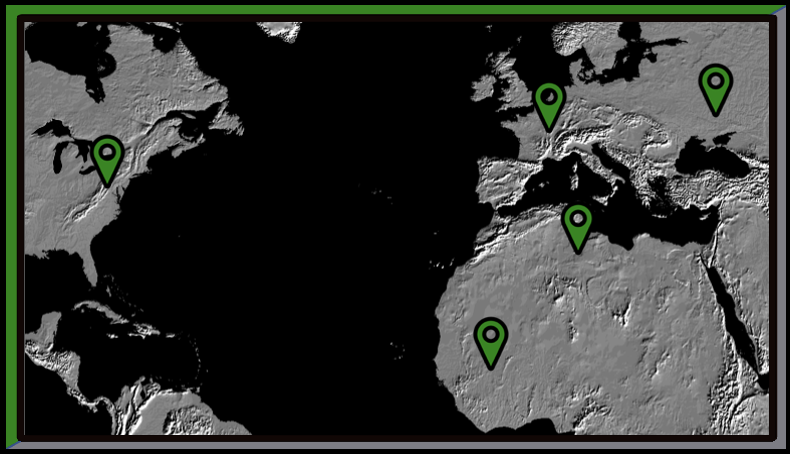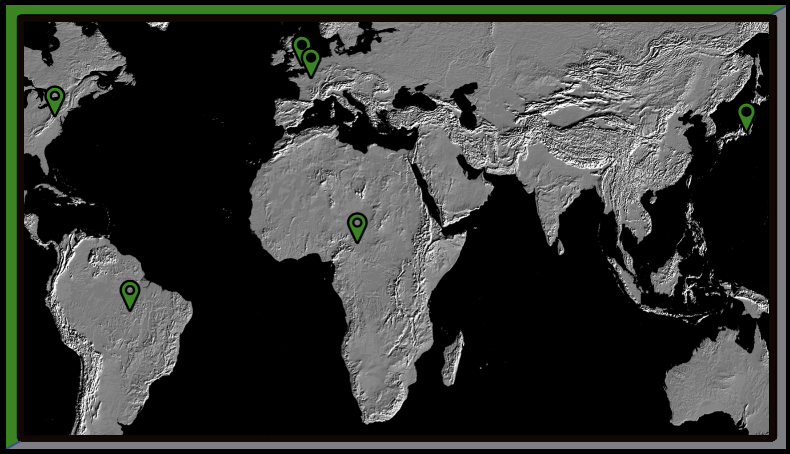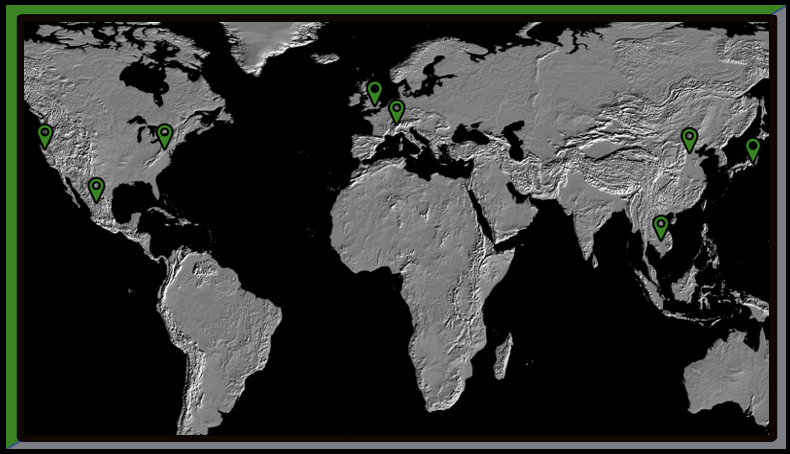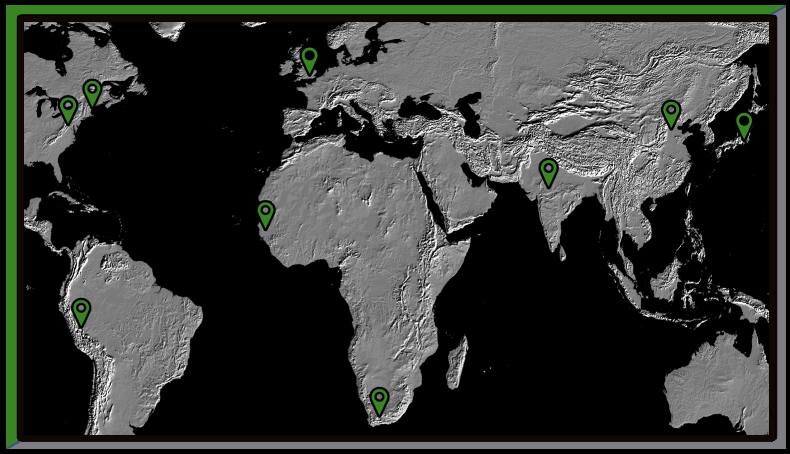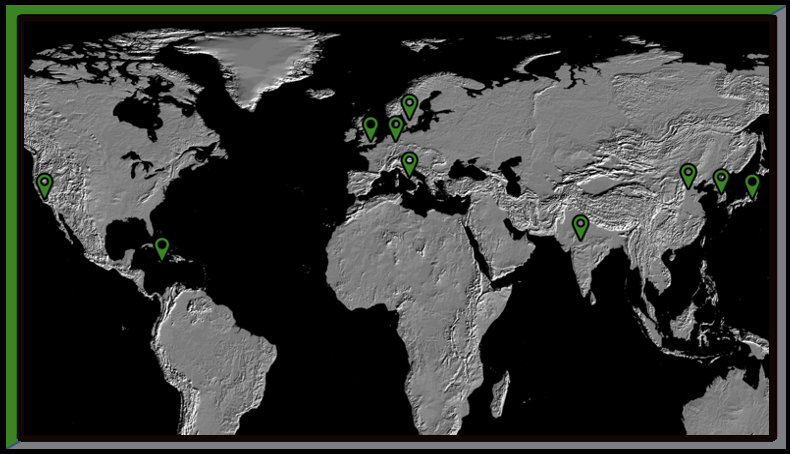-
American History
- American History Honors >
- Unit 0: 1763 - 1800 - Revolutionary America
- Unit 1: 1800 - 1848 - Expansion & Reform
- Unit 2: 1848 - 1877 - A Nation Divided
- Unit 3: 1865 - 1898 - The Gilded Age
- Unit 4: 1890 - 1920 - American World Debut
- Unit 5: 1920 - 1945 - Trials and Tribulations
- Unit 6: 1945 - 1963 - Cold War Tensions
- Unit 7: 1955 - 1980 - Conflicts & Resolutions
- Unit 8: 1980 - present - Modern America
-
World History
- World History Honors
- Unit 1: (1200-1450) - State Building in the Global Tapestry
- Unit 2: (1200-1450) - Networks of Exchange
- Unit 3: (1450-1750) - Land-Based Empires
- Unit 4: (1450-1750) - Sea of Exploration
- Unit 5: (1750-1900) - Revolutions
- Unit 6: (1750-1900) - Imperial Migration
- Unit 7: (1900-present) - Global Conflicts
- Unit 8: (1900-present) - Cold War & Decolonization
- Unit 9: (1900-present) - Globalization
-
Advanced Placement (AP)
-
AP World History
>
- Unit 1: (1200-1450) - State Building in the Global Tapestry
- Unit 2: (1200-1450) - Networks of Exchange
- Unit 3: (1450-1750) - Land-Based Empires
- Unit 4: (1450-1750) - Transoceanic Interconnections
- Unit 5: (1750-1900) - Revolutions
- Unit 6: (1750-1900) - Imperial Migration
- Unit 7: (1900-present) - Global Conflicts
- Unit 8: (1900-present) - Cold War & Decolonization
- Unit 9: (1900-present) - Globalization
-
AP European History
>
- Unit I - The Rise of Europe
- Unit II - Rebirth and Exploration
- Unit III - A Fractured Faith
- Unit IV - A Question of Sovereignty
- Unit V - A Shifting Society
- Unit VI - Revolution
- Unit VII - Political Turmoil
- Unit VIII - Rise of the Nation-State
- Unit IX - Forging the Modern Era
- Unit X - Imperialism and the Great War
- Unit XI - Global Conflicts
- Unit XII - The Long Peace
-
AP World History
>
- Civic Literacy
|
NEED TO KNOW
|
The connection of different parts of the world resulting in the expansion of international culture, economies and political activities associated with globalization increasingly made the world feel smaller. At the heart of this interconnectivity were advances in technology that impacted and reshaped the modern globalized world.
|
|
NEED TO KNOW
|
During the 20th century, concern over the environment led the world to address the human activity that contributed to deforestation, desertification, and decline in air quality, as increased consumption of the world’s resources intensified more than ever before.
|
|
NEED TO KNOW
|
In the late 20th century, the spread of free-market economies along with revolutions in information and communications technology led to the growth of knowledge economies in some regions, while industrial economies were increasingly situated in Asia and Latin America as international corporations took advantage of both economies.
|
|
NEED TO KNOW
|
As the world became more globalized through technology, transportation, communication and economics, this opened an international discussion on many issues facing the world and challenged age-old beliefs about race, class, gender and religion as the world made efforts to address many long-standing injustices and inequities.
|
|
NEED TO KNOW
|
Following the immense competitive environment of the early 20th century that was violently weaned off imperialism through two world wars and a cold war, the world transitioned into a much more cooperative environment where political and social changes were allowed to affect global culture.
|
-
American History
- American History Honors >
- Unit 0: 1763 - 1800 - Revolutionary America
- Unit 1: 1800 - 1848 - Expansion & Reform
- Unit 2: 1848 - 1877 - A Nation Divided
- Unit 3: 1865 - 1898 - The Gilded Age
- Unit 4: 1890 - 1920 - American World Debut
- Unit 5: 1920 - 1945 - Trials and Tribulations
- Unit 6: 1945 - 1963 - Cold War Tensions
- Unit 7: 1955 - 1980 - Conflicts & Resolutions
- Unit 8: 1980 - present - Modern America
-
World History
- World History Honors
- Unit 1: (1200-1450) - State Building in the Global Tapestry
- Unit 2: (1200-1450) - Networks of Exchange
- Unit 3: (1450-1750) - Land-Based Empires
- Unit 4: (1450-1750) - Sea of Exploration
- Unit 5: (1750-1900) - Revolutions
- Unit 6: (1750-1900) - Imperial Migration
- Unit 7: (1900-present) - Global Conflicts
- Unit 8: (1900-present) - Cold War & Decolonization
- Unit 9: (1900-present) - Globalization
-
Advanced Placement (AP)
-
AP World History
>
- Unit 1: (1200-1450) - State Building in the Global Tapestry
- Unit 2: (1200-1450) - Networks of Exchange
- Unit 3: (1450-1750) - Land-Based Empires
- Unit 4: (1450-1750) - Transoceanic Interconnections
- Unit 5: (1750-1900) - Revolutions
- Unit 6: (1750-1900) - Imperial Migration
- Unit 7: (1900-present) - Global Conflicts
- Unit 8: (1900-present) - Cold War & Decolonization
- Unit 9: (1900-present) - Globalization
-
AP European History
>
- Unit I - The Rise of Europe
- Unit II - Rebirth and Exploration
- Unit III - A Fractured Faith
- Unit IV - A Question of Sovereignty
- Unit V - A Shifting Society
- Unit VI - Revolution
- Unit VII - Political Turmoil
- Unit VIII - Rise of the Nation-State
- Unit IX - Forging the Modern Era
- Unit X - Imperialism and the Great War
- Unit XI - Global Conflicts
- Unit XII - The Long Peace
-
AP World History
>
- Civic Literacy








